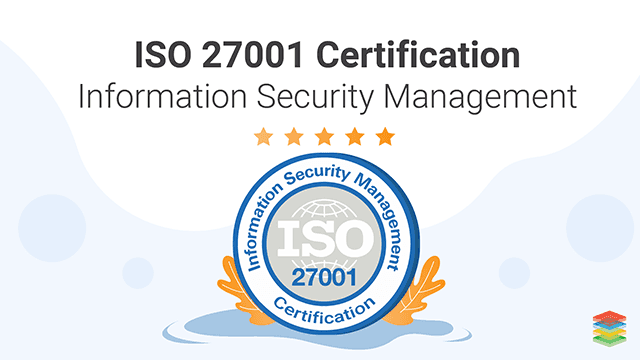ISO Certification for Information Security Management

ISO certification for information security management refers to compliance with the ISO/IEC 27001 standard, which provides requirements for establishing, implementing, maintaining, and continually improving an information security management system (ISMS). ISO/IEC 27001 certification demonstrates an organization's commitment to protecting the confidentiality, integrity, and availability of its information assets.
Here are key aspects of ISO certification for information security management:
ISO/IEC 27001 Standard: ISO/IEC 27001 is an international standard developed by the International Organization for Standardization (ISO) and the International Electrotechnical Commission (IEC) that provides a comprehensive framework for managing information security risks. The standard is applicable to organizations of all sizes and industries, aiming to ensure the confidentiality, integrity, and availability of information assets.
Information Security Management System (ISMS): ISO/IEC 27001 requires organizations to establish an ISMS, which is a set of policies, procedures, processes, and controls designed to manage information security risks and protect sensitive information. The ISMS helps organizations identify, assess, mitigate, and monitor information security risks, ensuring the confidentiality, integrity, and availability of information assets.
Risk-Based Approach: ISO/IEC 27001 promotes a risk-based approach to information security management, emphasizing the identification, assessment, and treatment of information security risks. Organizations are required to conduct risk assessments, identify vulnerabilities, and implement controls to mitigate or eliminate security risks to an acceptable level.
Legal and Regulatory Compliance: ISO/IEC 27001 requires organizations to identify and comply with applicable legal, regulatory, and contractual requirements related to information security. Compliance with ISO/IEC 27001 helps organizations ensure that they meet legal obligations, protect sensitive information, and reduce the risk of legal and regulatory non-compliance.
Confidentiality, Integrity, and Availability (CIA): ISO/IEC 27001 focuses on maintaining the confidentiality, integrity, and availability of information assets. Organizations are required to implement controls to prevent unauthorized access to information, protect information from unauthorized modification or destruction, and ensure that information is available when needed.
Continuous Improvement: ISO/IEC 27001 emphasizes the importance of continuous improvement in information security management. Organizations are required to monitor, measure, and evaluate the effectiveness of their ISMS, conduct internal audits, and take corrective and preventive actions to address non-conformities and improve information security performance.
Certification Process: Organizations seeking ISO/IEC 27001 certification undergo a certification process conducted by accredited third-party certification bodies. The certification process typically involves a comprehensive assessment of the organization's ISMS, including documentation review, site visits, interviews, and performance evaluation against ISO/IEC 27001 requirements.
ISO/IEC 27001 certification is recognized globally and demonstrates an organization's commitment to protecting sensitive information, managing information security risks, and enhancing overall security posture. It can enhance the organization's reputation, credibility, and competitiveness, while also providing assurance to customers, partners, and stakeholders that their information is being managed securely and responsibly.
Thank you,